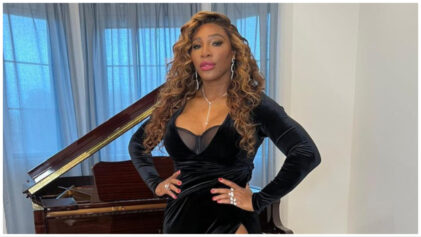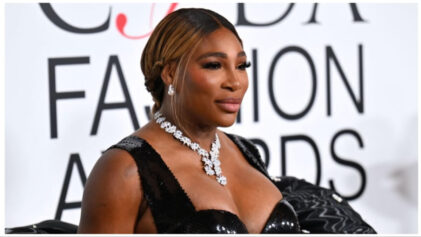Tennis icon Serena Williams is on the receiving end of harsh criticism about comments she made in a Rolling Stone profile that many observers interpreted as Williams blaming the victim for what was done to her in the infamous Steubenville, Ohio, rape case.
In March, an Ohio judge found teens Ma’lik Richmond, 16, and Trent Mays, 17, both football players at Steubenville High School, guilty of raping a female friend at a party last year while she was incapacitated by alcohol.
The case gained national notoriety because as the rape was occurring, other students watched and texted details of the crime instead of intervening. Local law enforcement officials and the school football coach were also accused of participating in a cover-up for not immediately pursuing charges in the case.
Whenever anyone has publicly suggested that the 16-year-old girl should have avoided becoming so incapacitated, they have been attacked for blaming the victim. That’s exactly what’s happened to tennis champ Williams, fresh off her dominating triumph at the French Open last week.
In the Rolling Stone profile, which spends thousands of words pushing the idea that Williams doesn’t care what the world thinks of her, the tennis champ commented on the Steubenville case when it flashed on a screen while she was at a nail salon with the writer Stephen Rodrick.
This is how Rodrick set up her comments:
We watch the news for a while, and the infamous Steubenville rape case flashes on the TV – two high school football players raped a drunk 16-year-old, while other students watched and texted details of the crime. Serena just shakes her head. “Do you think it was fair, what they got? They did something stupid, but I don’t know. I’m not blaming the girl, but if you’re a 16-year-old and you’re drunk like that, your parents should teach you: Don’t take drinks from other people. She’s 16, why was she that drunk where she doesn’t remember? It could have been much worse. She’s lucky. Obviously, I don’t know, maybe she wasn’t a virgin, but she shouldn’t have put herself in that position, unless they slipped her something, then that’s different.”
While the gist of her comments are likely what most parents would tell their young daughters about how to stay out of harm’s way, anything that remotely blames the girl for what happened to her is going to be characterized as blaming the victim—a phenomenon that is often described as “rape culture.”
Twitter is where the condemnation of Williams has been building, with feminists, activists and sports world figures taking shots at her.
“For the first time ever, I’m really disappointed in Serena Williams,” tweeted ESPN sports reporter Jemele Hill.
Williams is also featured in a cover story in the current issue of Essence written by bestselling author Denene Millner, who writes about Williams’ status as a sex symbol celebrated for her curves, particularly in the black community:
Pop culture ogles Serena like a modern-day Venus Hottentot, her body discussed in parts: her chiseled arms, her ample breasts and especially her perfectly round, bodacious butt. The attention, Serena admits, can be “a bit weird,” particularly when she sees the abundance of pictures of her, ahem, assets. Which weren’t always so well-received. “Before it was, ‘Serena has a big butt,’ and that was it,” she says with a shrug. But my, how things have changed. “Now there are way more people who feel comfortable with themselves and they’re saying, ‘I’m a woman, and this is what I look like.’ I always say, ‘We’re popular now! We’re finally in style!'”


